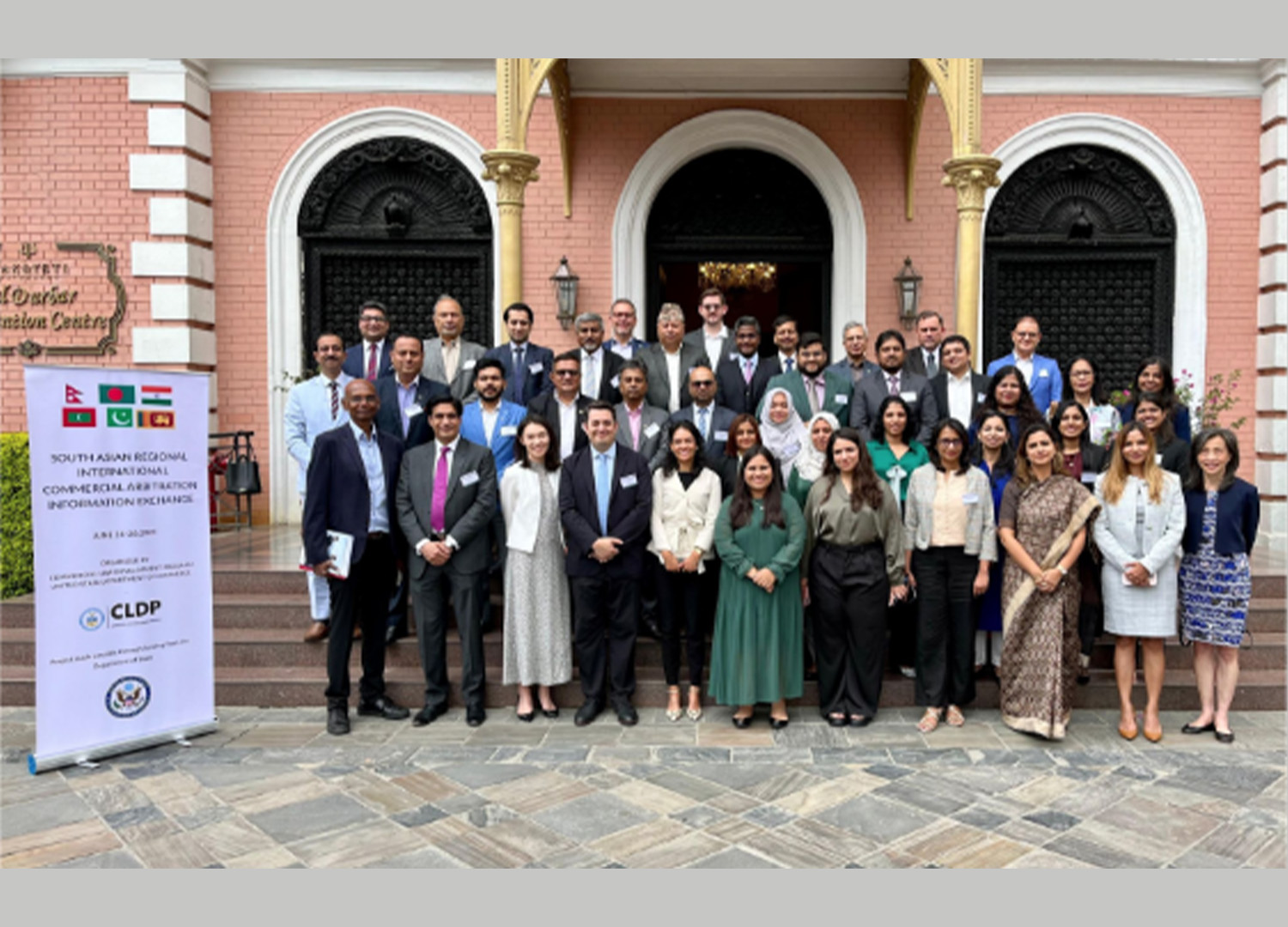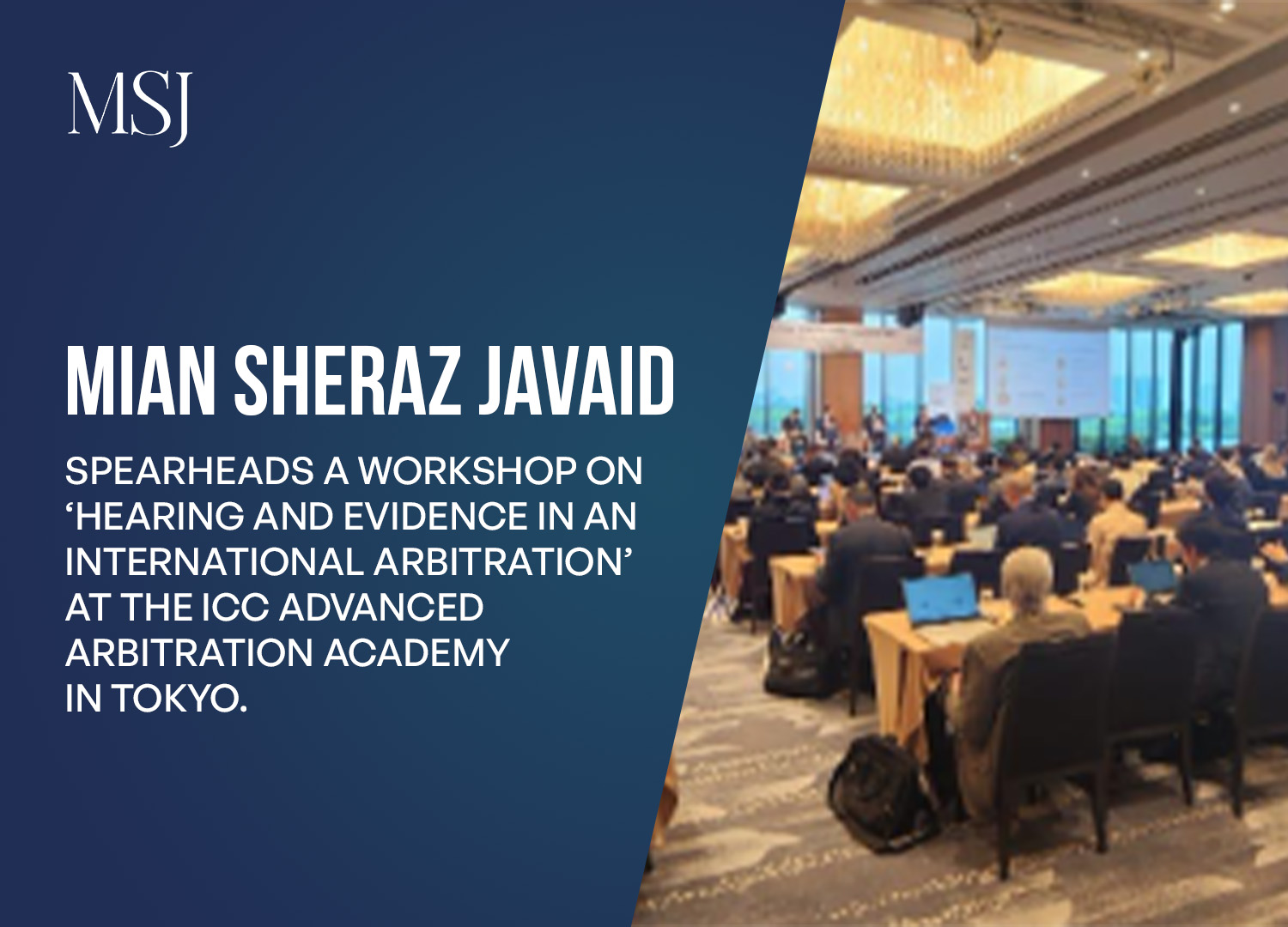Mian Sheraz Javaid Leads ADR Centre Development Training in Nepal to Strengthen Arbitration Infrastructure
During his visit to Nepal, Mian Sheraz Javaid participated in a well-rounded ADR Centre Development Training session as the co-host. The training program is an important step in increasing Nepal's capabilities to handle complex arbitration cases and elevate its position within the regional and global arbitration landscape.
Institution Development Training by NEPCA was considered an important constituent of the initiatives made to strengthen ADR capacities in Nepal. Laying strong foundations and operational efficiencies, it recognised several critical areas necessary for the success of the ADR centres, including case management techniques and marketing strategies to increase business procurement.
Strengthening ADR Centres from the Ground Up
The effective and efficient way in which Mian Sheraz Javaid conducted the training was of utmost worth, so a clear understanding was provided among all participants about how to effectively build ADR and scale it up. The overall session was on the lines that ADR centres should be developed from a strong foundational level, moving forward on the key elements of efficient case management, developing robust legal frameworks, and the integration of technical infrastructure set at par with global standards.
"An ADR centre needs a strong foundation to flourish," said Sheraz during the session. "This means building solid technical infrastructure, ensuring the legal framework is sound, and developing capacity-building strategies that align with globally recognised standards. Without these components, ADR centres struggle to manage complex disputes and meet international expectations."
The Chartered Institute of Arbitrators (Ciarb) has been in the limelight for arbitrating and the resolution of disputes at international platforms, under which Sheraz has undergone his training. Hence, the training emphasised the fact that Ciarb plays a leading role in benchmarking ADR centres at world-class standards. Empanelment of Ciarb-certified practicing lawyers was taken as an initiative that gave these ADR centres recognition and expertise through their services toward their clients in any corner of this globe.
Building Capacity for Growth and Success
Capacity building was also another important aspect that was emphasised in the training. Sheraz and Andriotis shared how ADR centers can arm their teams with the appropriate skills and knowledge needed to deal with an ever-increasing arbitration case load. Adequate capacity building ensures that the centre's staff and practitioners can handle a diverse range of disputes and develop the expertise to address increasingly complex international arbitration matters.
"Capacity building is essential not only for managing disputes but for enhancing the reputation of ADR centres," said Sheraz. "By ensuring that practitioners are highly skilled and well-trained, ADR centres can build trust with clients and become the go-to destination for dispute resolution."
On this, training was also provided on cases with the need to show good techniques of case management. To effectively manage cases, ADR centres ought to have a streamlined and well-structured system. Sheraz highlighted ways of improving efficiency by reducing delays through enhancing quality services offered to clients in terms of case management best practices. These are not only applicable to local cases but rather crucial in making international business come to regional ADR centres like NEPCA.
Sheraz and Andriotis also discussed methods of improving marketing techniques to reach more people. ADR centres, by using appropriate marketing strategies, can reach wider audiences and serve a larger client population, especially from foreign investors seeking safe and efficient ways of dispute resolution.
Regional ADR Centres and Their Role in Attracting Foreign Investment
During the training, it was widely discussed that more and more regional ADR centres, particularly NEPCA, are being recognised around the world in international arbitration agreements. Sheraz has further elaborated that emerging market-located ADR centres have been increasingly named as the preferred centre or seat for arbitration in international agreements. This development not only enhances their reputation but also aids in bringing foreign investment to Nepal and other such countries.
"Regional ADR centres like NEPCA have become increasingly important in international arbitration," Sheraz explained. "When businesses enter into cross-border agreements, they are more likely to select ADR centres within the region as the preferred venue for resolving disputes. This can have a significant positive impact on a country's investment climate, as it assures foreign investors that there is a reliable and effective mechanism for resolving disputes."
By making NEPCA a centre of international arbitration that people can rely on, Nepal will be able to increase its regional standing in the global arbitration market, thus opening avenues for increased foreign investment and trade. This, in turn, will help raise Nepal's legal and commercial infrastructure, thereby making it an even more attractive destination for international businesses.
Gratitude and Acknowledgments for the Collaboration
Mian Sheraz Javaid took some time during the session to thank the key organisations and individuals that made the workshop possible. He especially thanked the Commercial Law Development Program, particularly Grishma Pradhan, Mark Warburton, and Chimai Tran-Luu, for their collaborative efforts. Sheraz also appreciated the opportunity to conduct the Arbitration Institution Workshop at NEPCA and underscored the importance of working together to build stronger ADR systems.
"I am incredibly grateful to the team at the Commercial Law Development Program for giving me the opportunity to contribute to this important workshop," Sheraz said. "It’s an honour to help strengthen ADR centres in Nepal and assist in the development of such a crucial sector for the country’s growth."
Sheraz mentioned that it is a very special moment for him to meet Dr. Rajendra Prasad face-to-face at the training session. Sheraz said he would be really looking forward to having Dr. Prasad visit Pakistan in the near future as part of this international training so that professional interaction already initiated can continue.
Conclusion: Strengthening Nepal’s Role in Global ADR
Mian Sheraz Javaid and Tony Andriotis-led NEPCA Institution Development Training has really impacted the ADR infrastructure in Nepal. This workshop will empower participants with all the tools and insights needed to build and expand ADR centres so they can compete at the international level. By putting a focus on foundational development, capacity building, and strategic marketing, the training sets the stage for NEPCA and other regional ADR centres to attract more business, enhance their global reputation, and foster growth in international investment in Nepal.
International arbitration agreements now increasingly recognise regional ADR centres. Nepal's arbitration landscape will thus grow and develop. Mian Sheraz Javaid is actively involved in this process, and through training workshops like NEPCA, he continues to strengthen the capacity of Nepal to handle complex arbitration cases while positioning the country at the forefront of the global ADR ecosystem.
Subscribe to get latest Updates & Activities.
Follow us on Medium, Twitter, Facebook, YouTube, and Dribbble.








